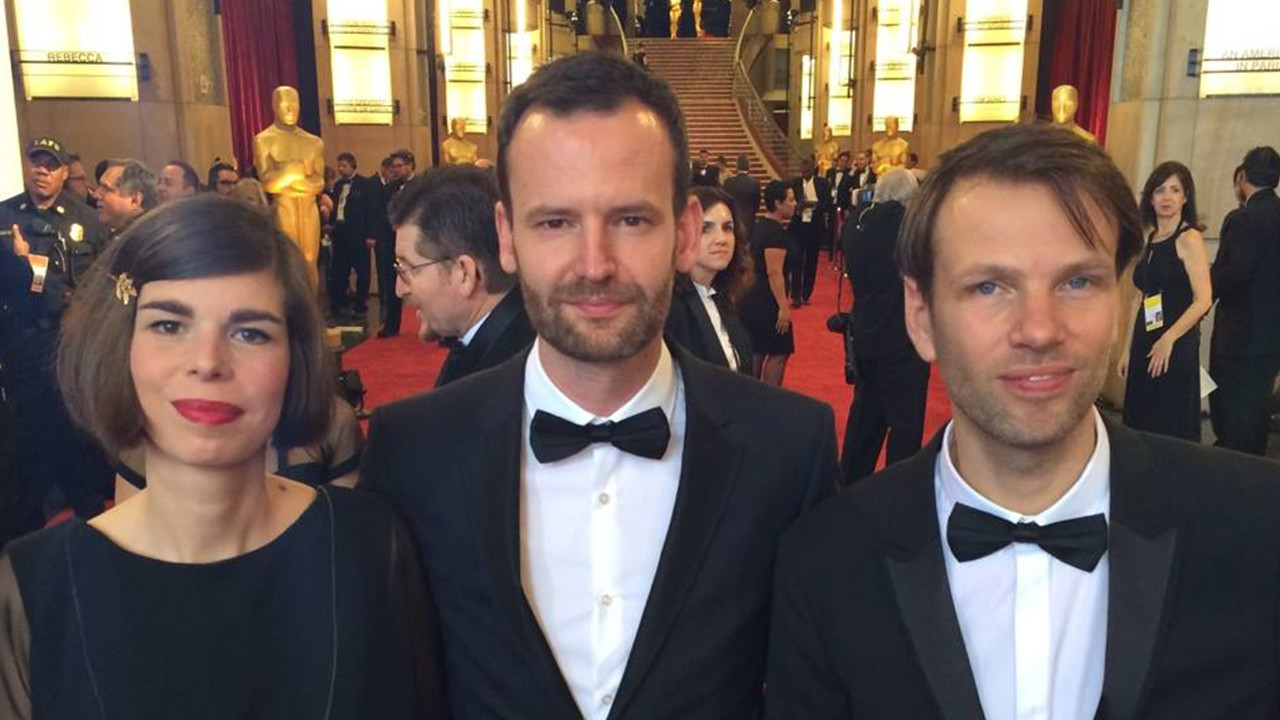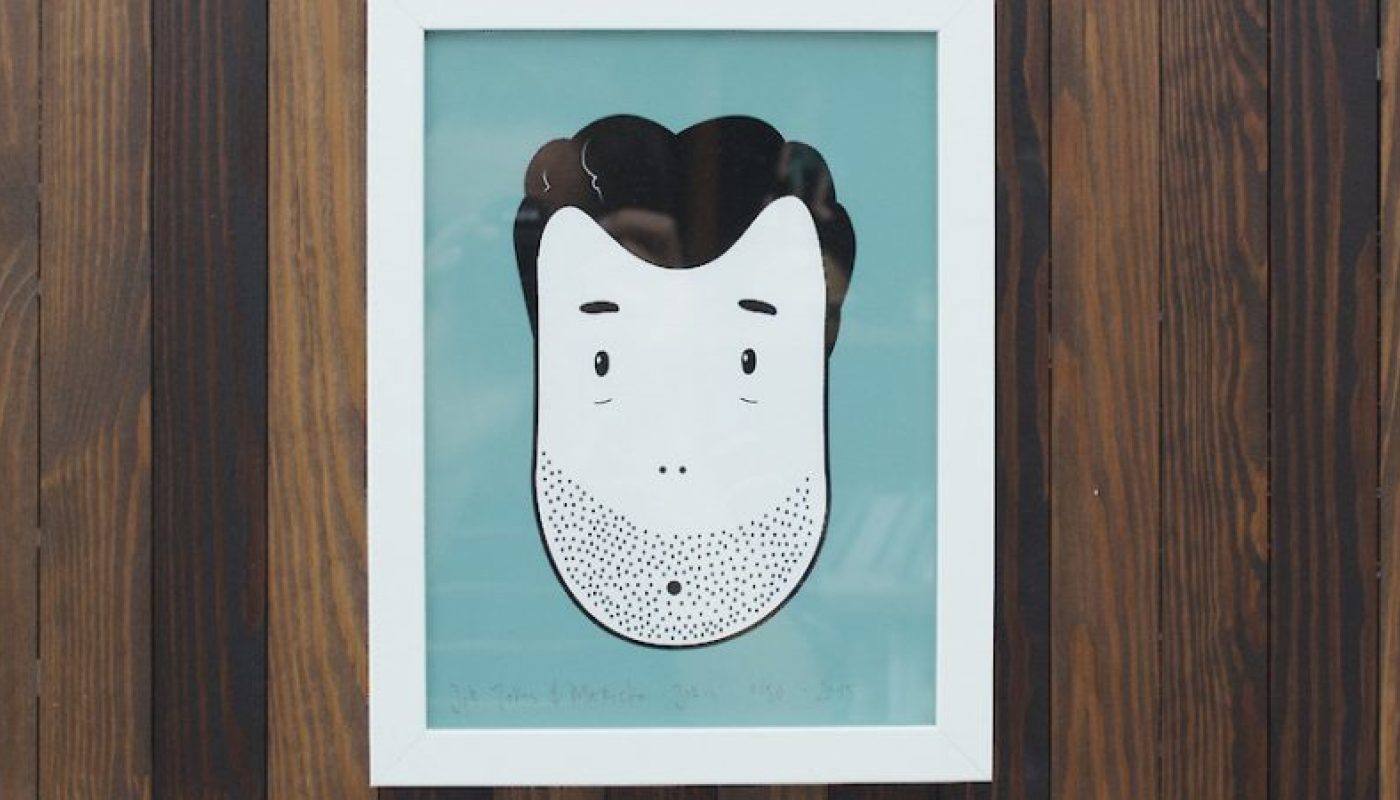

Job, Joris & Marieke – The Dutch Animator Trio
CineSud Magazine explores the success story of three friends who share one passion: the creation of animation films.
Geplaatst op 21 januari 2019After the runaway success of their animation films A Double Life, (Otto), A Single Life and many others, the Dutch directors Job Roggeveen, Joris Oprins and Marieke Blaauw are now developing a children’s series based on their short film Heads Together. Moreover, they are working on a script for a feature film. Today they share with CineSud Magazine how it all began. They talk about the start of their collaboration, their fruitful work, their attitude towards the gender conformity and their festival experience. Sit back and enjoy our new article about these young, talented filmmakers.
“This overall confusion about gender conformity, about what is female and what is male, formed the basis of the concept for A Double Life.”
Background
Despite the fact that this trio graduated from the Design Academy Eindhoven in the Netherlands and might have become product designers, these three youngsters decided to change their profession dramatically. Job Roggeveen, Joris Oprins and Marieke Blaauw always wanted to tell stories to people, so that is exactly what they started doing. However, they combined their passion with their design skills which they had been gaining since entering the Academy. Animation became a perfect solution for these young people, as it allowed them to do what they are fond of and good at at the same time. Today Job, Joris and Marieke are successful owners of an animation studio called very simply and memorably “Job, Joris & Marieke”. It was founded in 2007 in the fourth-largest city of the Netherlands – Utrecht. What is more, the directors have a small recording studio where Job does not only make the music for all their films but also for Happy Camper, a music project which invites singers to sing his songs.
The start of their cooperation
Job, Joris and Marieke have been friends since the beginning of their study. They remember: “We always liked hanging out together and watching films in Joris’ student room. We sort of grew up together by watching the same films and listening to the same music.”
One of their university projects resulted in the idea of making a short film. During the process of its creation, the trio felt really natural. They were on the same page from the first day of work. The directors say: “We wanted the same things and we had the same tastes. There was never an official contract or agreement about working together after our study, it just happened because it felt right.” That is why it is pretty easy for the trio to find a common language. Nevertheless, quarrels arise sometimes. Those are typically about the film’s concept or storyline. With regard to the fact how Job, Joris and Marieke deal with these problems, they say: “We try to talk about it and find a common ground, something we all agree on. And if that doesn’t happen, it’s very simple; with three people there is usually the majority in favour of a certain decision.”
The trio cannot imagine their lives without each other. If they had not met, they could have ended up doing something different altogether. The directors comment: “Maybe Joris and Marieke would have worked in an ad agency and Job would have become a musician. Or maybe we would have been making films on our own. However, animation means a lot of work, and because of our collaboration, we have achieved much more than we would have been able to achieve working separately.”
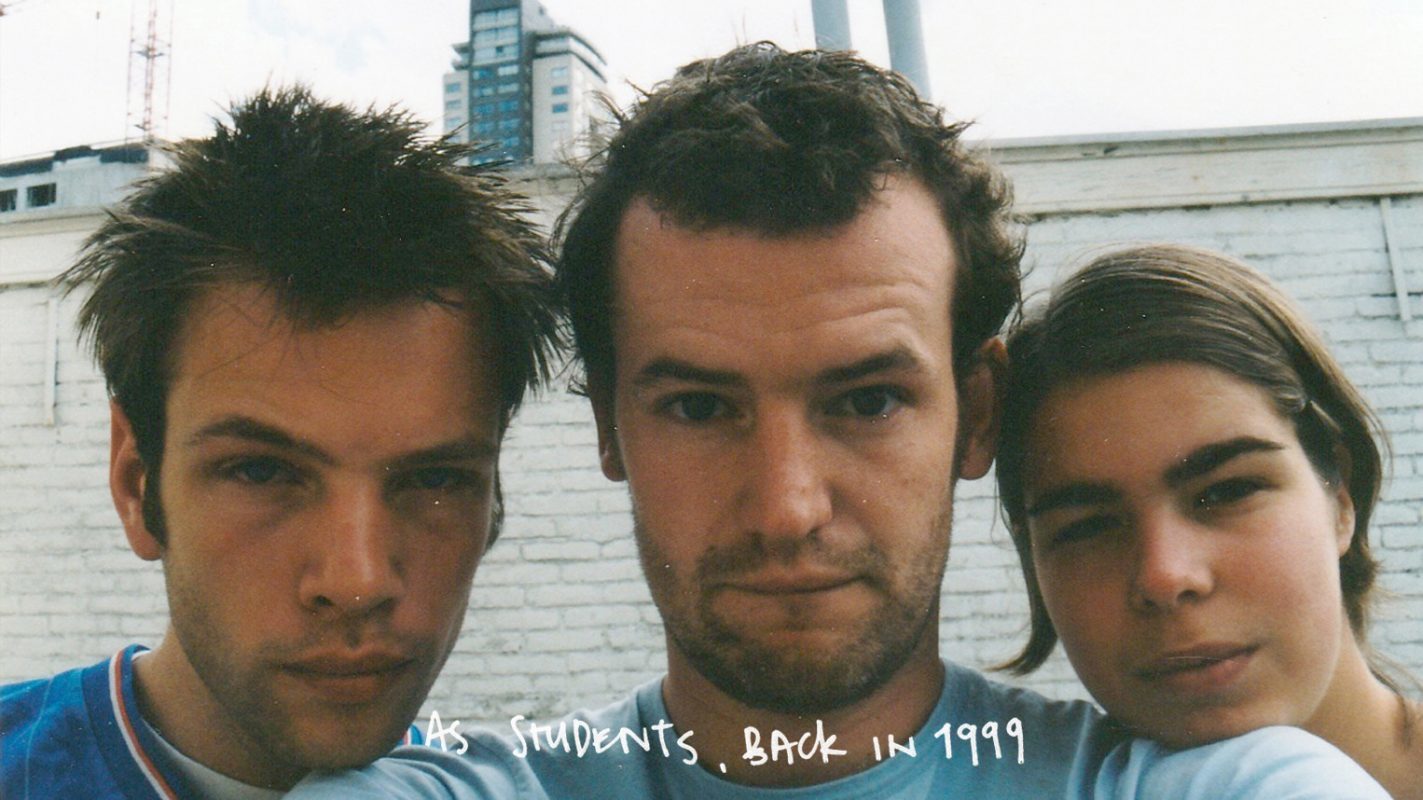
The fruitful work of the trio
Since the foundation of their own animation studio, Job, Joris and Marieke have made a large number of short films which have been recognized all over the world and have taken part in various film festivals, winning most of them. One of their latest projects, A Double Life, an animation comedy about a married couple that has different points of view on gender conformity, has a really interesting story about its title. Job, Joris and Marieke remember: “The title for this film started out as a joke. We were thinking about a good title for this film, and we were stuck. Nothing seemed right. After a few hours, Job said in desperation: ‘Our previous film was called A Single Life, so let’s just call it A Double Life and be done with it.’” Firstly, this idea seemed to be absurd, but soon the three discovered that it was actually the perfect title. Both characters lead double lives in the film. For instance, the man paints his lips red and the woman shaves her face, which is in other words, atypical gender behaviour. Therefore it was the most suitable name for this film and also a smart way to remind people that Job, Joris and Marieke also made A Single Life. They even made a small homage to A Single Life. The man’s mistress in A Double Life, looks very much like the main character from A Single Life.
You have the opportunity to watch A Single Life online, as it is in the public domain on Vimeo.
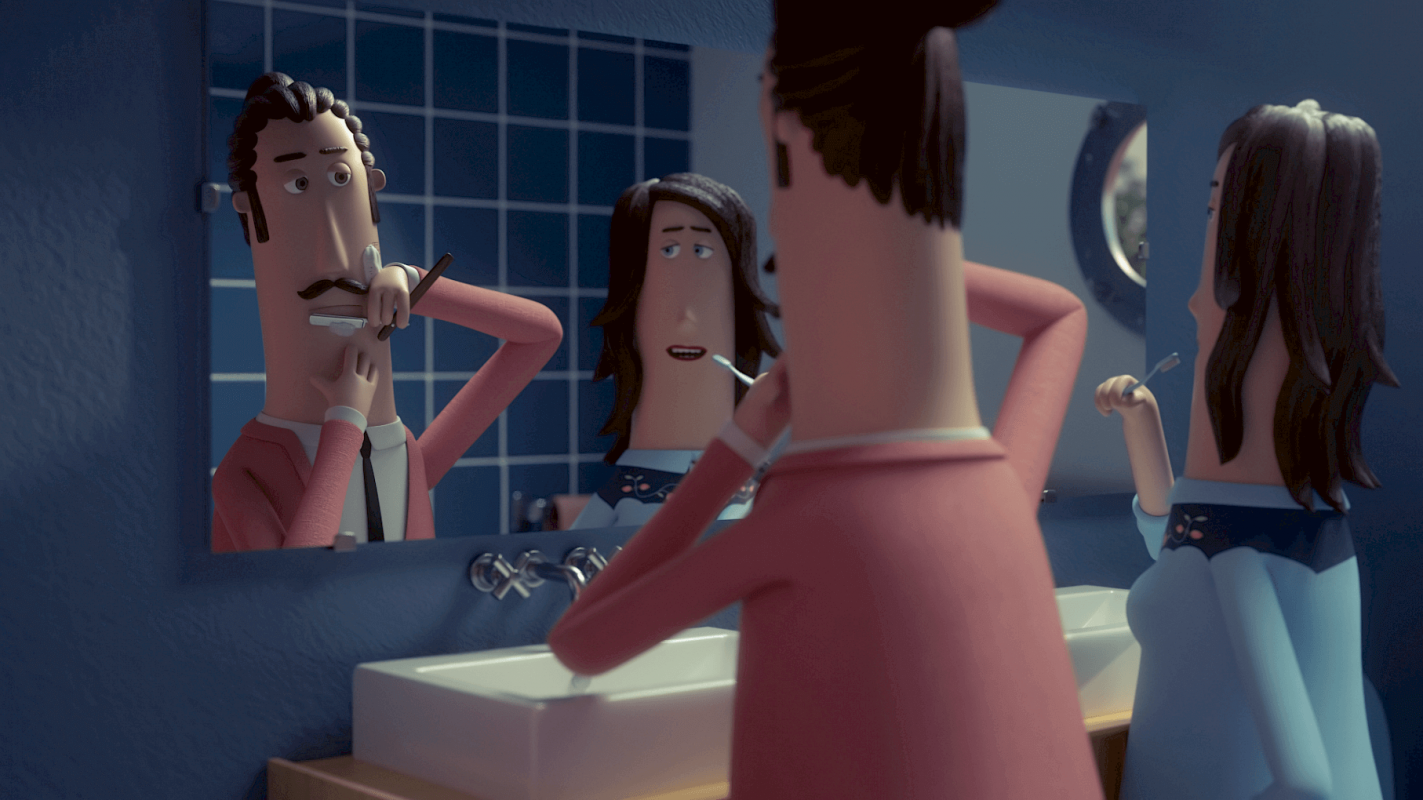
Their attitude towards gender conformity
A Double Life is not really about the Dutch directors’ personal attitude towards gender conformity, it is more about the overall confusion about gender conformity. According to Job, Joris and Marieke, there were two themes that fascinated them when they were writing the script for this film. Firstly, there were a lot of TV shows on Dutch television that focused on gender with great titles like Love Me Gender or Gender Bender Festival which is taking place in Italy every year. At the same time there was a controversy about gender neutral toilets. It was clear that there was a lot of bewilderment about gender or about what should be considered male and what female. In the directors’ opinion, the creation of the labels “male” and “female” might be a social shortcoming altogether.
Next to that, the three young directors read a lot about the shifting balance between men and women in the workspace and the confusion this shift seems to create. They say: “Sometimes men feel threatened in their masculinity and they overcompensate it by growing large beards and picking chopping wood as a hobby. And women are unsure whether they should start wearing suits to be taken seriously. Some men feel insecure about not being the main provider of the family.” That is what inspired the directors to make a project about this topic. This overall confusion about gender conformity, about what is female and what is male, formed the basis of the concept for A Double Life.
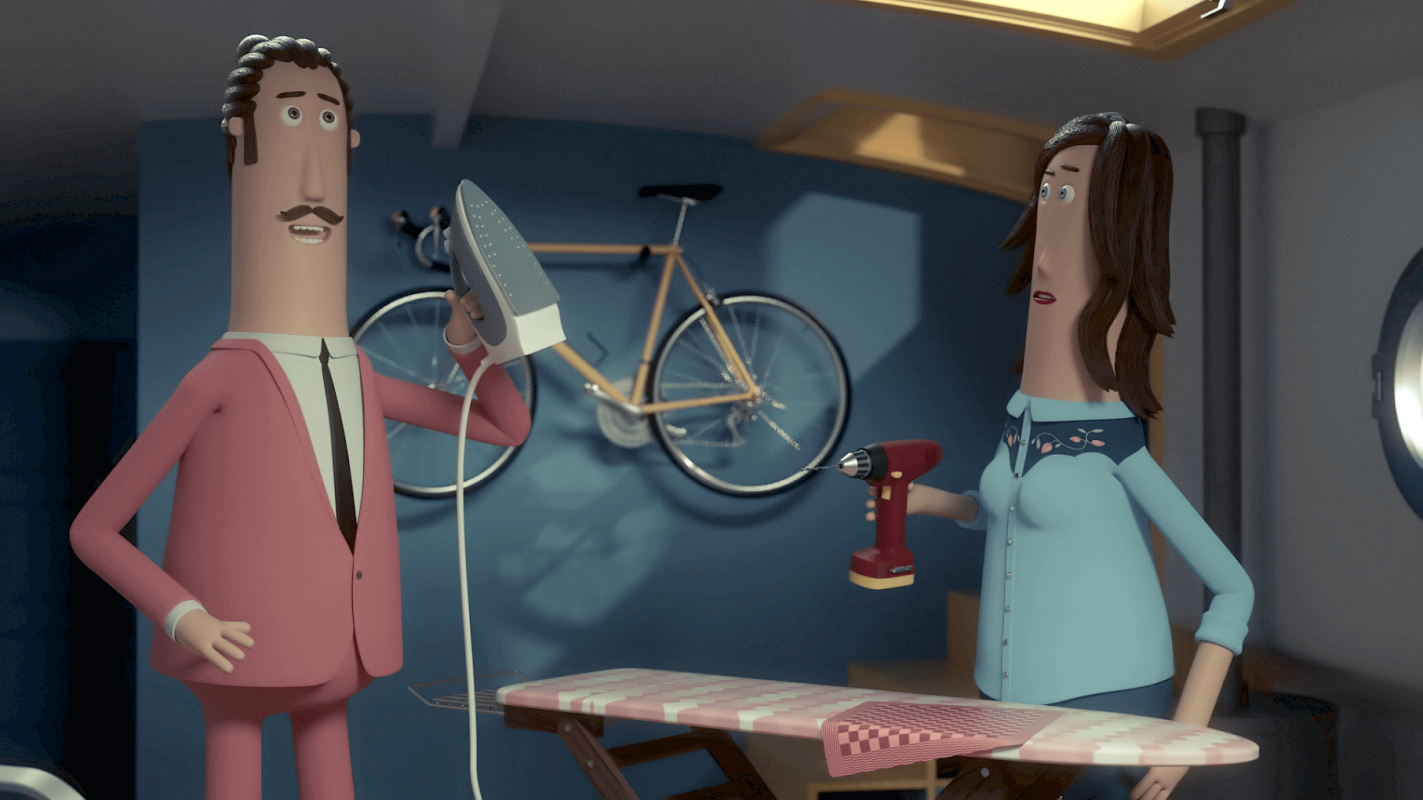
Perception of the films
Concerning the principles that guide Job, Joris and Marieke during their work on their films, they say: “First of all, we think we always try to let the story guide the project. Of course it’s important that it looks great, but if the story is mediocre, the film will be mediocre as well.” The directors also learnt that they are the toughest audience of their own films. As long as they trust their instincts and make sure that they like it, the project is probably good. Nobody sees their films as many times as they do. The trio comments: “If something is not okay about the film, it keeps bugging us each time we watch it. So the best thing to do is to make it as perfect as we can.”
When the film is finished the project is still only done halfway, because reaching an audience is also a big challenge. Job, Joris and Marieke spend a lot of time promoting their work, online or at festivals. The trio is convinced that a great film that nobody sees would still feel like a failure.
Their inspiration and ideas
The young directors are full of energy and ideas. Job, Joris and Marieke release their short films and animation books on a regular basis. They always have several projects they are working on at the same time and a whiteboard in their studio with future projects. Sometimes there might only be a single word and it could stay on the whiteboard for years before they start working with it. They say: “The line ‘headless character’, for instance, was the basis for our short film Heads Together (Kop Op in Dutch). We are going to make a series from that film this year, and the film might win an International Emmy (Kids Awards) in April.” Most ideas come spontaneously. They might be fuelled by an observation, a news item, or a line somebody says on a train. It could be anything. The three share each others’ ideas all the time and if they are good, they will be placed on their whiteboard.
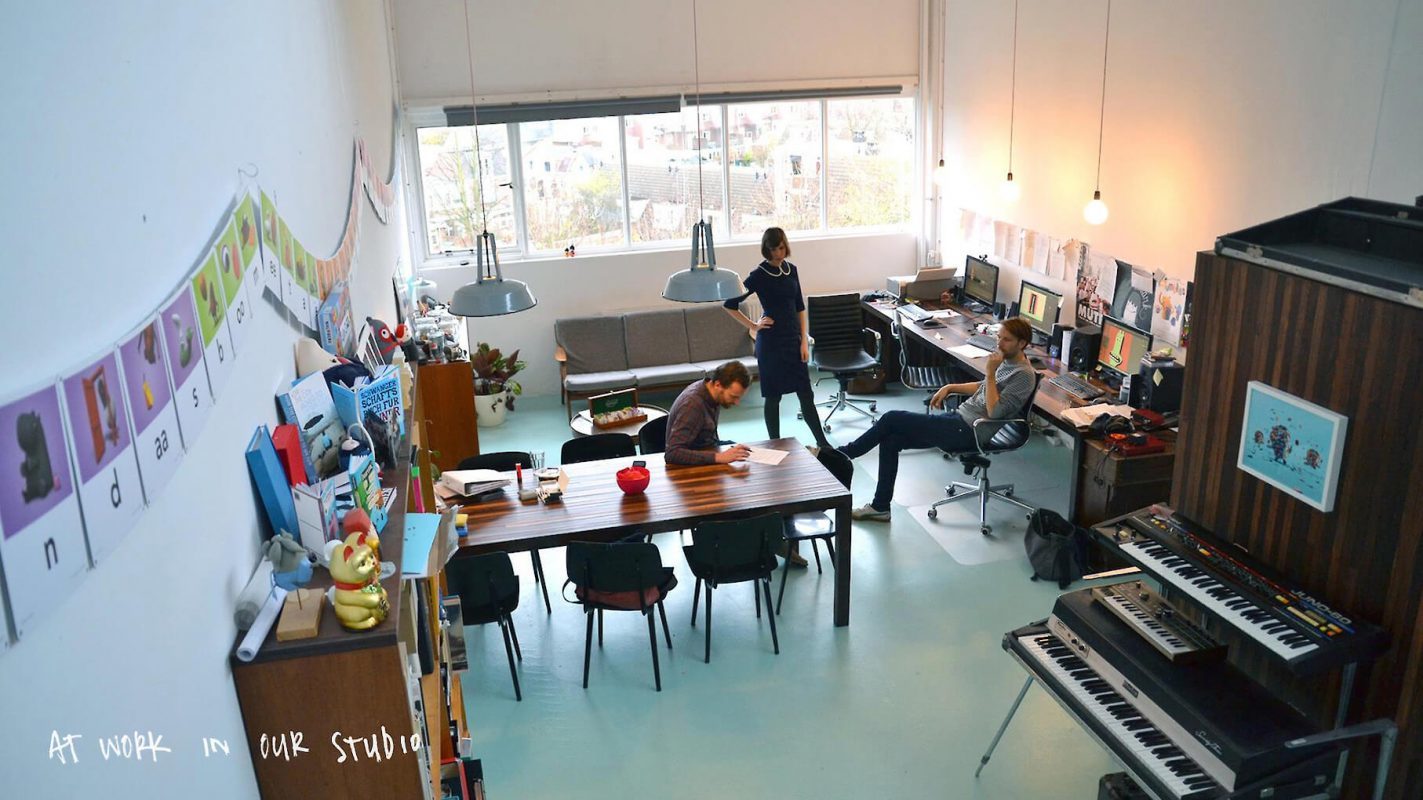
Their festival experience
Job, Joris and Marieke are excited about The Netherlands Film Festival. Their very first film Moi was screened there in 2006 and since then their films have been screened there almost every year. The directors say: “Two years ago we celebrated the studio’s 10th anniversary at the festival with an overview of our work. On top of that the festival is held in our hometown Utrecht, so that even enhances the experience.”
Their short films A Single Life and (Otto) were screened at the Toronto International Film Festival. Only Joris has been able to visit TIFF. He remembers that he had a great time. It is a wonderful city and the festival organised a lot of interesting events for the filmmakers.
The three filmmakers do not always visit all festivals together, so in retrospect the directors can say that Job’s best festival experience was at the New Chitose Airport International Animation festival (which is held at an actual airport in Japan), Joris’ favourite festival experience was at TIFF and Marieke’s was at the Stuttgart International Festival of Animated Film. She says, she was impressed by he fact that the festival also showed films on a public square which allowed a very broad audience to watch the animated films submitted to the festival.
You can find more information about Job, Joris and Marieke on their own website.
